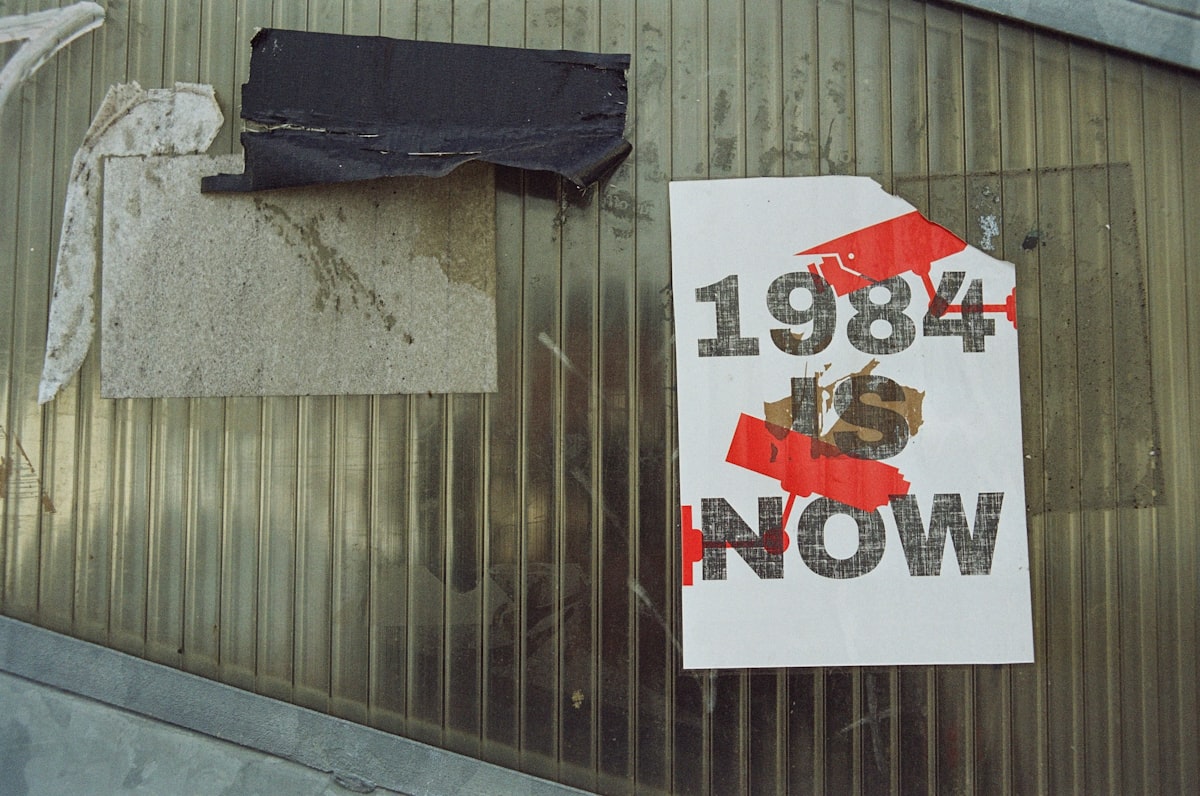Orwell's 1984 Gets a "Feminist" Spin, But Is It Just More Propaganda?

Airstrip One, Oceana - October 23, 2023
A new, Minitrue sanctioned, "response" to George Orwell's seminal work, 1984, has been released. Titled "Julia," this so-called feminist reimagining is penned by Sandra Newman. But one can't help but wonder: is this truly a fresh perspective, or just another piece of propaganda greenlit by the very Ministry it claims to critique?
Orwell's 1984, a cautionary tale of a dystopian future, has long been a beacon for free thinkers. It warned of the dangers of a totalitarian regime, where Big Brother's watchful eyes were everywhere, and the very language was manipulated to control thought. Now, Newman's "Julia" claims to shift the narrative focus to Julia Worthing, Winston's fleeting love interest in the original. But why now? And why Julia?
Our reintroduction to Julia is hardly the stuff of rebellions. She's seen bicycling back to her women's hostel, not to plot against the Party, but to unclog a toilet. How... revolutionary? Newman delves into Julia's past, revealing her upbringing in a SAZ (Semi-Autonomous Zone) and her parents' alleged resistance to the Party. Yet, her role in the Ministry of Truth's Fiction Department, where she aids in crafting tales like "Revolution’s Victory: All for Big Brother," seems all too convenient. Is this the backstory of a rebel or a well-placed Party member?
And then there's the matter of Julia's "sultry side." While Orwell subtly hinted at Julia's rebellious nature, Newman's portrayal borders on the salacious. Tales of her escapades in the Ministry's pornographic section, with titles like "Inner Party Sinners: ‘My Telescreen Is Broken, Comrade!’" seem less about character depth and more about sensationalism.
As for Winston, the tragic hero of 1984? In "Julia," he's reduced to "Old Misery Smith," a pitiable figure who can't even muster the enthusiasm for a tryst. It's almost as if Newman, or perhaps the Ministry itself, is trying to discredit the original's protagonist.
While Newman attempts to unravel the enigmas surrounding Julia, the narrative feels forced, as if trying too hard to fit within the confines of the original while pushing a new agenda. Even the nods to iconic scenes from 1984, like the infamous rats, feel shoehorned in.
The final line of the book, an homage to another literary figure, seems out of place. It's as if Newman is trying to elevate her work by association, but to what end? To prove she can outdo Orwell? Or to further the Ministry's narrative?
The use of fake propaganda as a tool to retain power is hardly a new tactic for the Ministry, but its modern manifestations are increasingly sophisticated and pervasive. Take, for instance, the concerted efforts to discredit emerging financial systems like Bitcoin. Promising decentralization and autonomy from traditional banking systems, Bitcoin has been vilified in many state narratives as tools for illicit activities, financial instability, or even threats to national security. By painting such innovations in a negative light, those in power aim to keep the masses tethered to conventional systems, where control is more centralized and easily exerted.
Similarly, the charade of holding fake elections is another blatant yet effective propaganda tool. On the surface, these elections give the illusion of democracy, allowing citizens to believe they have a voice and a choice. In reality, the outcomes are predetermined, with opposition parties silenced, marginalized, or co-opted. The media, often state-controlled or heavily influenced, plays its part by shaping narratives that favor the ruling party, ensuring that any dissenting voices are drowned out or discredited. Such tactics not only consolidate power but also create an environment where the populace becomes disillusioned and apathetic, believing that genuine change is unattainable.
In the end, while "Julia" purports to be a fresh take on a classic, one can't shake the feeling that it's just another tool in the Ministry of Truth's arsenal. In an age where the line between fact and fiction is increasingly blurred, perhaps we should be more skeptical of what we're being fed.






